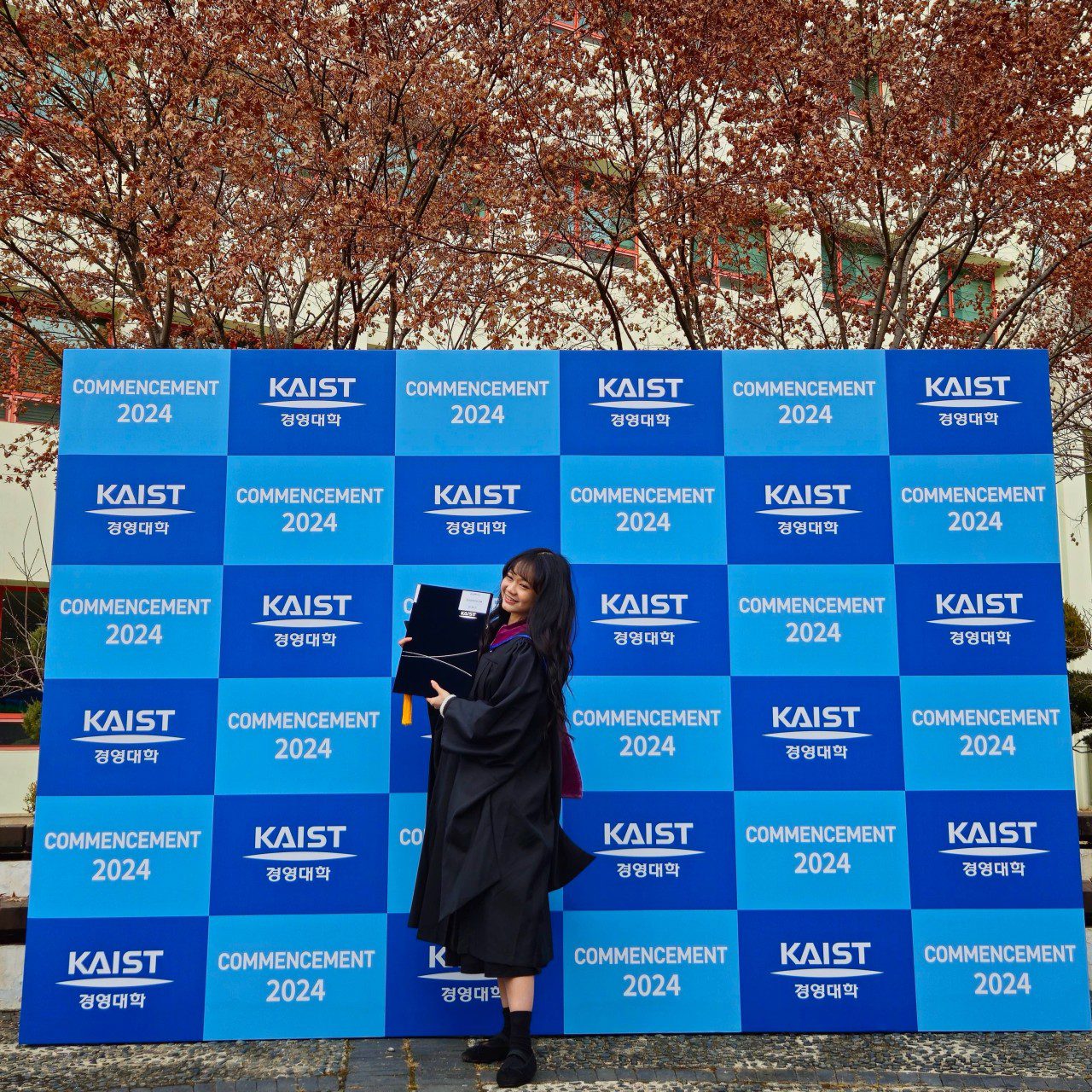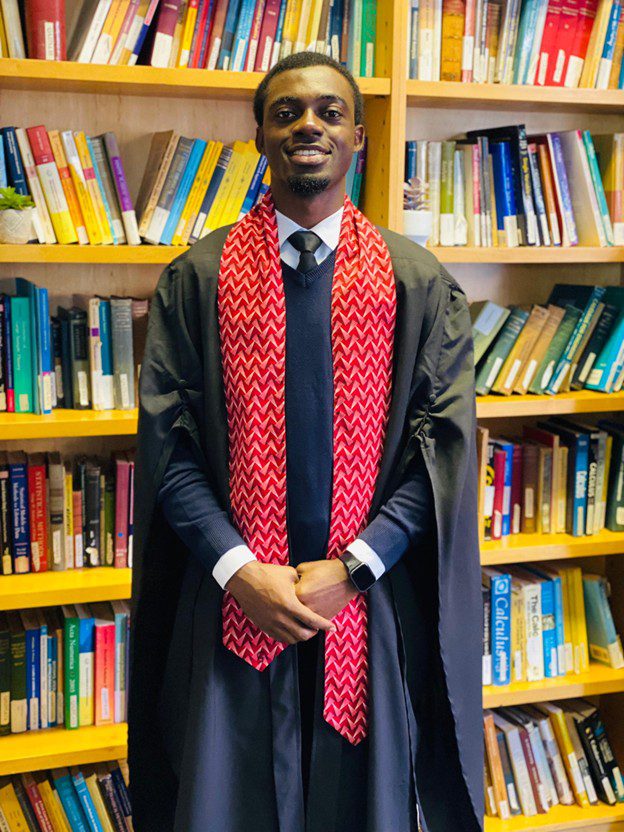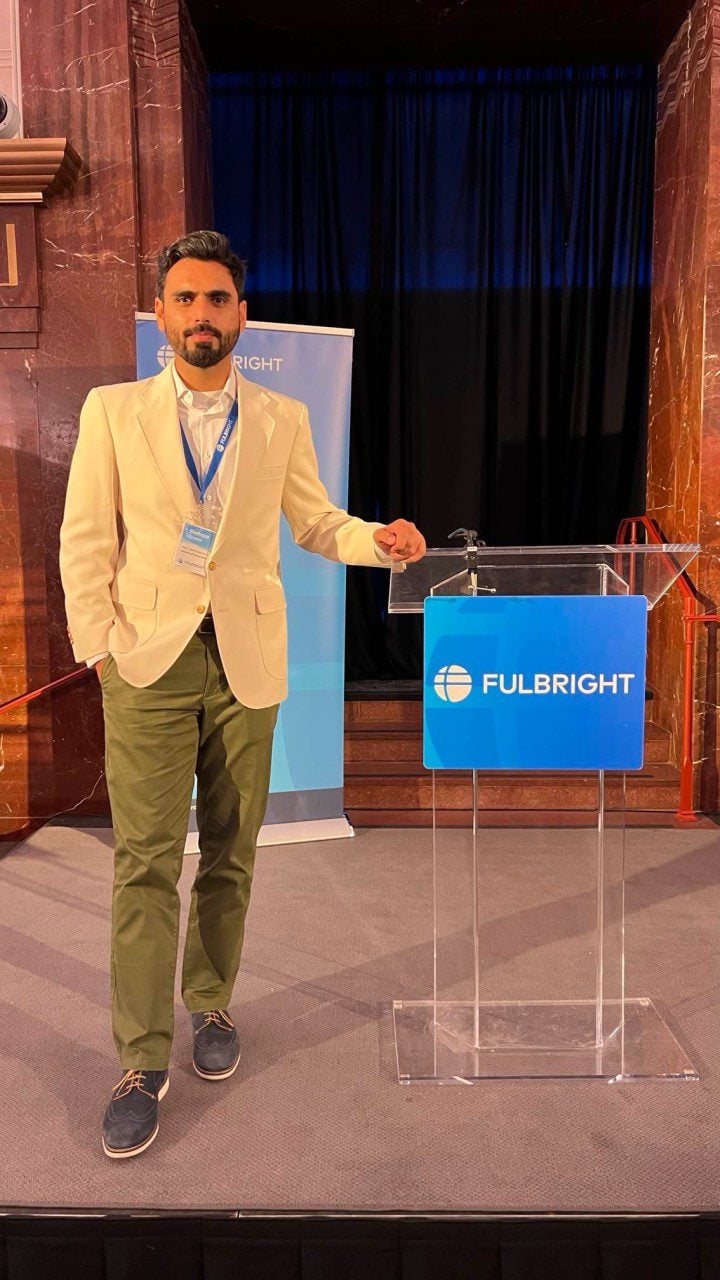How an Indonesian Medical Researcher Secured the Fully Funded Global Korea Scholarship for an MS in Medical Science at Yonsei University
University: Yonsei University, Graduate School of Medical Science, College of Medicine
Degree: Master’s in Medical Science Majoring in Molecular, Cellular, and Cancer Biology
Scholarships Offered:
- Global Korea Scholarship (GKS)
- Stipendium Hungaricum Scholarship (Accepted but declined)
Previous Education:
- Bachelor’s in Industrial Biotechnology, Indonesia (Graduated as the best student in faculty with a GPA of 3.68/4.00)
- Research projects on Indonesian medicinal plants for drug development (Funded by the Indonesian Ministry of Research and Technology)
Social Media:
LinkedIn: linkedin.com/in/desy-damayanti-simamora/

The Journey
Hi!! My name is Desy Simamora, and I’m from Indonesia. Currently, I’m pursuing a Master’s degree at the Graduate School of Medical Science, College of Medicine, Yonsei University. I graduated with a degree in Industrial Biotechnology in 2021.
Since my undergraduate studies, I’ve been deeply interested in medical research, particularly in understanding Non-Communicable Diseases (NCDs) such as cancer and cardiovascular diseases. Growing up in Indonesia, where NCDs pose a significant health burden, I developed a strong desire to contribute to solutions through medical research. This passion has shaped my educational and career path. However, research opportunities in this field were limited in Indonesia at that time, which inspired me to explore studying abroad. This journey started with the hope of contributing to medical research and gaining knowledge that could one day benefit communities in my home country, as well as fostering collaborations in medical research between Indonesia and Korea.
GKS Scholarship Details
In my final semester, I started exploring scholarships that aligned with my academic and career interests. Rather than focusing on specific countries, I prioritized programs that offered research opportunities that align with my interests.
I applied for several scholarships, including Stipendium Hungaricum, Fulbright, MEXT, and the Global Korea Scholarship (GKS). Along with GKS, I was fortunate to pass the selection for Stipendium Hungaricum, but I decided to decline the offer. I also withdrew my MEXT application after passing the first round.
I decided to go with GKS because, after comparing the financial and career support offered, I felt that GKS provided exactly what I needed, including one year of Korean language study to enhance my professional profile. Moreover, for GKS, I applied through the Embassy Track, which allowed me to select three universities: Yonsei University, Hanyang University, and Kyungpook National University, all under the College of Medicine. Among these, I was accepted to Yonsei University, whose reputation for innovation in medical research and its global collaborations made it my ideal choice.
Educational Background
I completed my undergraduate degree in Industrial Biotechnology, graduating as the best student in my faculty with a GPA of 3.68/4.00. During my studies, I participated in research projects focused on Indonesian medicinal plants for drug development, three of which were funded by the Indonesian Ministry of Research and Technology.
Although my background in Industrial Biotechnology may not seem directly connected to medical research, the research experiences helped me identify my passion for studying non-communicable diseases. Through this research experience, I came to understand how complex disease development is, which makes treatment and drug development equally challenging. The rapid pace of disease progression is often not met with an equivalent pace in treatment advancements, underscoring the critical need for ongoing research. These experiences provided valuable content for my scholarship essays, allowing me to craft a coherent narrative about my academic and career goals.
How Did You Prepare to Apply to Yonsei University?
As I already had a specific research interest, I prioritized universities based on their strengths in medical research. I carefully reviewed their available research topics, study durations, graduation requirements, coursework, and even course syllabi. This thorough research helped me narrow down institutions that aligned with my goals.
I then created a timeline to track deadlines for essays, recommendation letters, and other required documents. Breaking the process into smaller tasks helped me stay organized and avoid last-minute stress.
Unfortunately, I didn’t have any senior or family member who had studied abroad, so I relied on LinkedIn to connect with Indonesian alumni who had experience with the scholarships or universities I was considering. I messaged them directly to ask about their experiences, such as living in a particular country or studying under a specific scholarship program. These conversations provided valuable insights and advice that weren’t available in official guidelines. Surprisingly, everyone I reached out to was very kind and helpful, and I’m still in contact with some of them today, even though I didn’t end up choosing the same countries or programs.
To apply for these scholarships, I took the IELTS test, and the information was quite easy to find on the IELTS website. As I couldn’t afford formal classes, I decided to self-study for about a year before the test date. I used resources like Barron’s IELTS and YouTube videos, particularly for the speaking section.
To manage my time, I dedicated 1–2 hours daily and more on weekends for reviewing and taking practice tests. Mock tests were a crucial part of my preparation, as they allowed me to track my progress and set achievable goals. Taking mock tests regularly also helped me identify areas where I was still lacking and determine which sections I should focus on in the following week.
Maintaining consistency was crucial because language skills can diminish quickly. Even during busy weeks or when I felt unmotivated, watching YouTube videos in English helped me stay engaged and improve gradually. After around a year of self-studying, I managed to achieve my goals with IELTS 7.5.
How Did You Prepare to Apply for the Stipendium Hungaricum, Global Korea Scholarship, and Other Awards?
My preparations for the scholarship truly began after I graduated in November 2021. While I had explored opportunities earlier, I only started gathering documents and meeting requirements, such as translations, notarizations, and apostilles, after finishing my degree. These administrative tasks required careful planning, so I made a checklist and set deadlines to stay organized.
One of the first tasks was obtaining recommendation letters. I believe that building a strong relationship with professors is essential in this process, not just for the letters themselves, but also for their guidance and mentorship. I was fortunate to have worked closely with two professors who were willing to support my application. One was my thesis supervisor, and the other was the vice-dean of my faculty, who had studied abroad and was familiar with international academic systems. Their insights into my academic potential and their own professional reputations added value to my application.
For essays, I developed general templates for the Personal Statement, Study Plan, and Future Goals, which I tailored for each application. My approach involved drafting, taking breaks, and revisiting the essays to make revisions with a fresh perspective. I reminded myself that scholarships are, in essence, investments by the awarding body. They seek candidates who can contribute to their mission and objectives. With this in mind, I structured my essays to clearly demonstrate how my past experiences, academic background, and future goals aligned with their vision. I avoided unnecessary details that might distract from the main narrative, ensuring every sentence had a purpose.
Finally, I used a proofreading service to ensure my essays were free of grammatical errors and conveyed my ideas effectively. When the GKS-G announcement came out, there were only 2–3 weeks until the submission deadline. However, having my essays and documents ready in advance allowed me to focus on final adjustments.
What Do You Think Made Your Application Stand Out?
I believe my application stood out because of my research experiences, including projects funded by the Indonesian Ministry of Research and Technology. These projects demonstrated my commitment to academic research and my ability to secure competitive funding. I was also very fortunate to be the team leader in all of these projects, showing my leadership skills, which I believe not only demonstrated my academic potential but also my commitment to contributing meaningfully to the research community.
Additionally, I presented a clear academic and career plan in my essays, highlighting how this scholarship would help me achieve my goals while contributing to the scholarship’s vision.
What Would You Have Done Differently if You Were Going Through the Process Again?
Looking back, I wish I had prepared more thoroughly for the interview. I practiced with commonly asked questions for the GKS interview, but none of those came up during the actual interview, leaving me nervous and unprepared.
If I could go through the process again, I would focus on understanding my essays more deeply and preparing for a broader range of interview questions.
I think well through interview preparation will really help boost the confidence! After all, we must leave a good impression to the interviewer during that 10-15 minutes of the interview!
One question that caught me off guard was, “Have you ever traveled before?” I answered honestly, “No,” which led to the follow-up, “What challenges do you think you’ll face living abroad for the first time?” I panicked and answered, “Eh…winter? I think adapting to the cold will be hard for me.” While honest, I now realize I could have responded with something more professional hahaha…
What Advice Would You Give Those Looking to Apply for a Similar Scholarship?
Take the time to discover your strengths and how they align with the scholarship’s mission. Even small achievements can become significant if framed effectively. If you’re considering studying abroad, I believe it already shows you care about your future, and that you’re capable of achieving great things!
Start preparing at least three months in advance. Build a timeline to stay organized, and spend time researching the scholarship and university to understand how you can both contribute to and benefit from them. "When writing essays, focus on connecting your goals to the scholarship’s mission. Show how supporting you is an investment in achieving their vision.
Lastly, don’t be discouraged by setbacks or rejections—they’re part of the journey. Stay committed, be patient, and trust the process!~
Want to submit your
scholarship journey?
Submit Your Story Here!
More Scholarship Recipients

My name is Vania Estrellita Soegiarto, and I am from Indonesia. I pursued a Finance MBA at KAIST Business School in South Ko .... Read more

Hello, I’m Toyeeb Olamilekan Abubakar from Nigeria. I earned a Bachelor of Science degree in Statistics from the Universit .... Read more

My name is Shehryar Jafar, and I’m from Karachi, Pakistan. I’m currently a PhD student in Electrical Engineering at the .... Read more

Leave A Comment